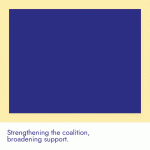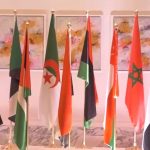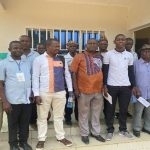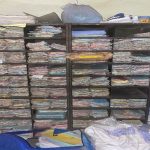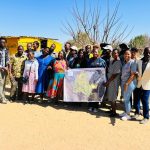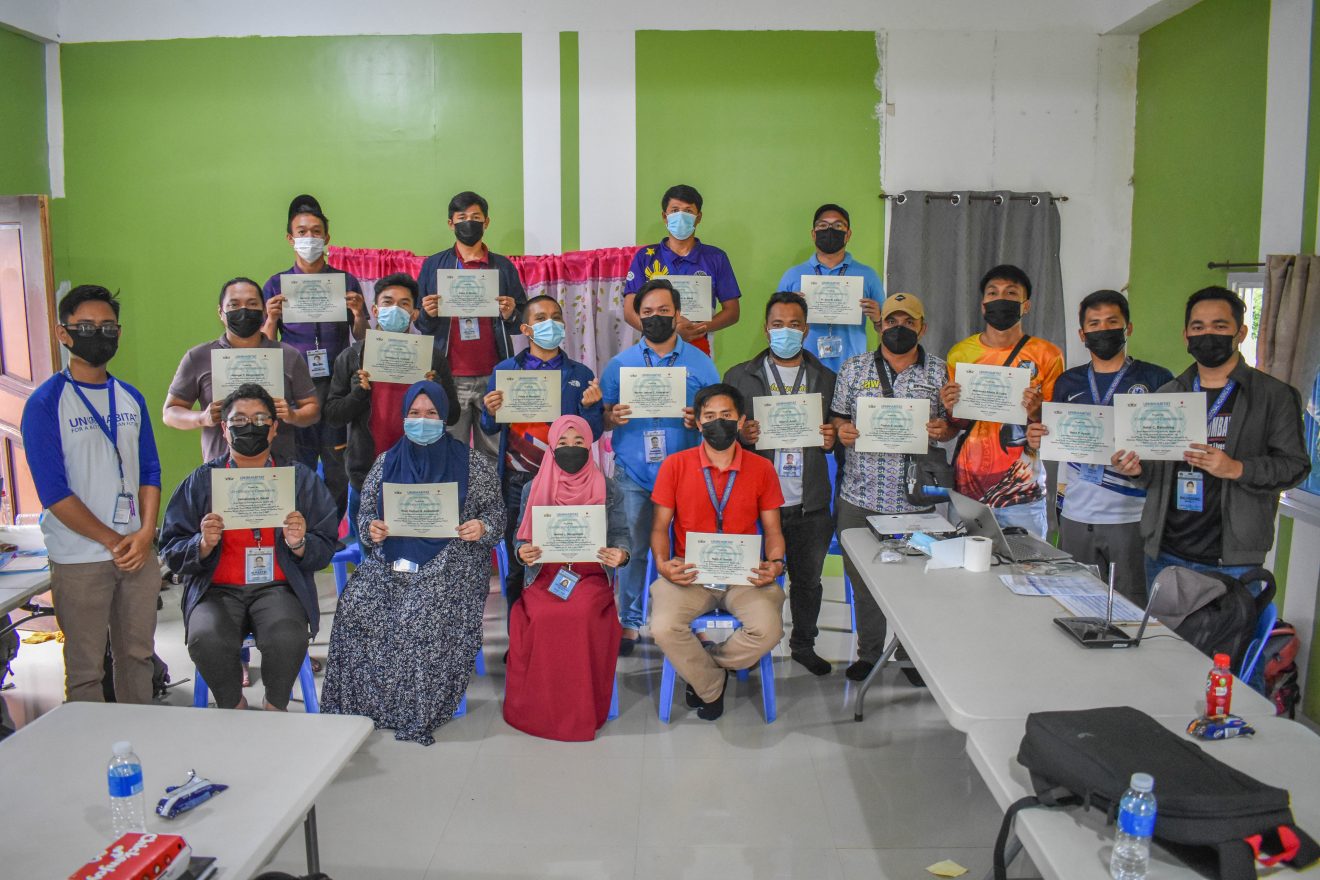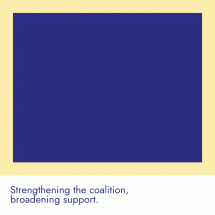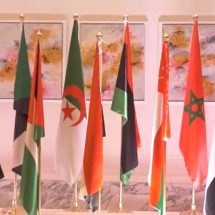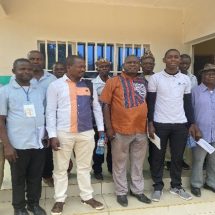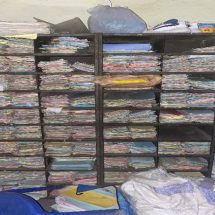Marawi City — Seventeen staff from the Community Social Services Division and Technical Unit of the National Housing Authority (NHA) have been trained in participatory community mapping and technical skills in the context of the Social Tenure Domain Model (STDM) concepts and processes. The training was conducted by UN-Habitat 30 June 30-1 July 2021 at the NHA Site in Barangay Kilala, Marawi City. The training conducted through lectures, GPS data collection fieldwork and hands-on sessions was part of the capacity-building support of UN-Habitat for its partners in the implementation of the Rebuilding Marawi Project.
UN-Habitat is using the STDM information tool to create the database to map the new houses of internally displaced families (IDPs) under the Rebuilding Marawi Project. This database also stores the profiles of 1,057 IDPs and these are digitally linked to maps of their original location inside the Most Affected Area (MAA) in Marawi City and their assigned resettlement sites where permanent houses are currently being constructed by UN-Habitat through funding support from the People of Japan.
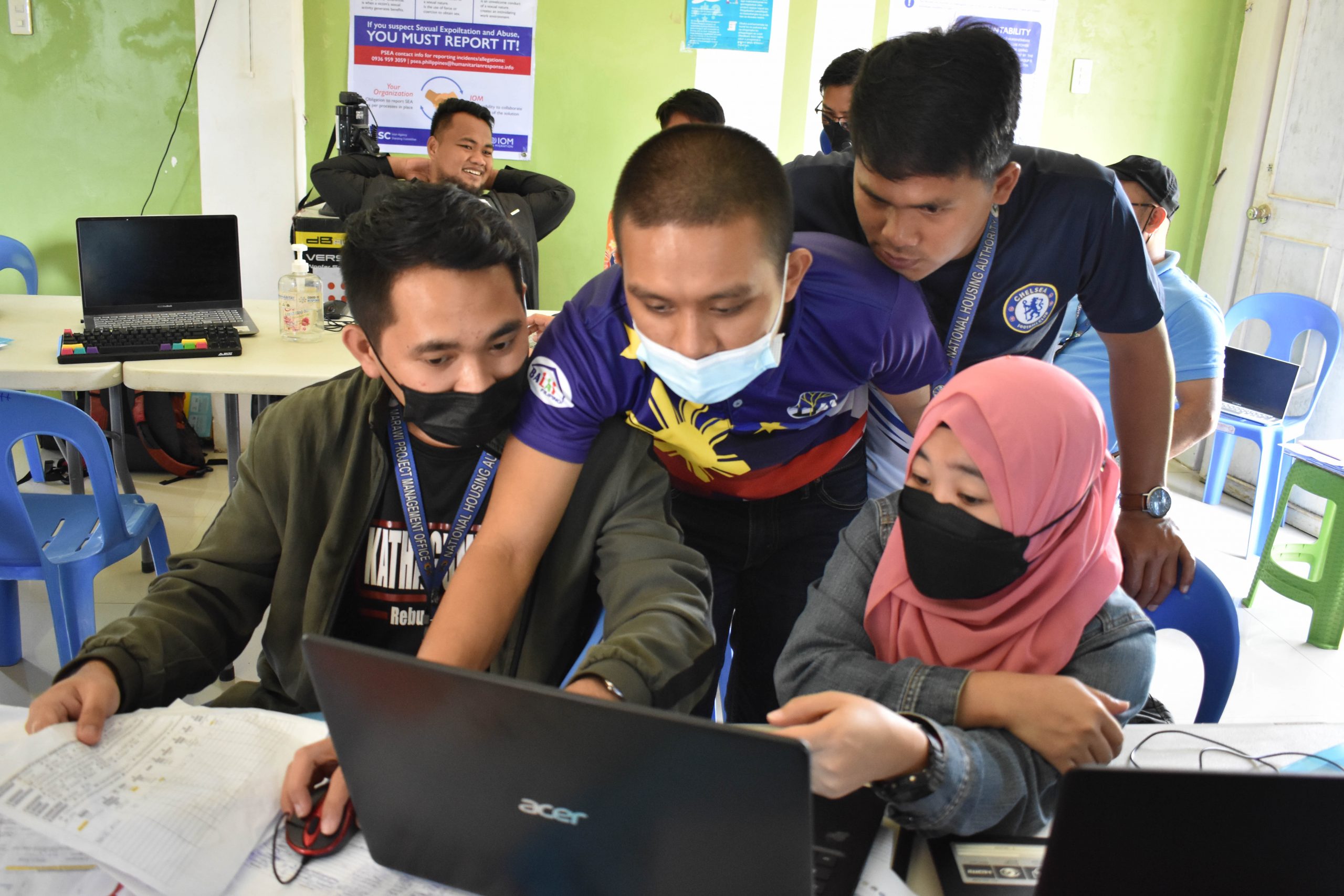
The STDM establishes the people-to-land relationships to prove the tenurial relationship of the displaced families to the permanent houses and lot area of the house inside the resettlement site. This is one step towards addressing the challenge in post-war Marawi where comprehensive land and property records are yet to be established.
The current project database with digital maps was created through a participatory process where the displaced families, barangay officials and project partners, including the LGU Marawi, participated in transect walks, community mapping, validation and re-validation. UN-Habitat continues to promote the use of the STDM application not just through trainings but also through presentations of the project database to project partners including Task Force Bangon Marawi, Project Steering Committee, City Assessor’s Office, among others. Although the database was initially developed by UN-Habitat, managing and updating the database will be the responsibility of local partners when the project ends by December 2021.
According to Nabil C. Balindong, a NHA Community Relations Officer who attended the training, “The STDM Training can be useful to NHA by making it easy for us to trace the location of the Marawi IDPs, particularly the housing beneficiaries. In just a few clicks, we will be able to have the bird’s eye-view of their identifying information. The housing beneficiaries will have an assurance that their profile and identifying information are secured.”
UN-Habitat seeks to build a total of 1,057 houses in five resettlement sites. Of these, 300 permanent houses are being built in two of NHA’s permanent shelter sites: 250 in Barangay. Kilala and 50 in Barangay Gadongan. The latter is scheduled to be handed over to 50 families 22 July 2021 together with 120 permanent houses in Darussalam Village in Barangay Dulay Proper, in partnership with the Social Housing Finance Corporation (SHFC). A Certificate of House and Lot Award will be issued to each of the 170 families, further strengthening their tenurial hold on their new permanent house and lot. Beyond this initial proof of ownership, UN-Habitat is further promoting the formalization of land rights by strongly encouraging its partners NHA and SHFC to issue individual lot titles to the families. This will help prevent residential land disputes from arising among and between home-partners in all five resettlement sites where the Rebuilding Marawi Project is constructing houses, and in the long-term, sustain the peace in the communities. (VAH/UN-Habitat)

